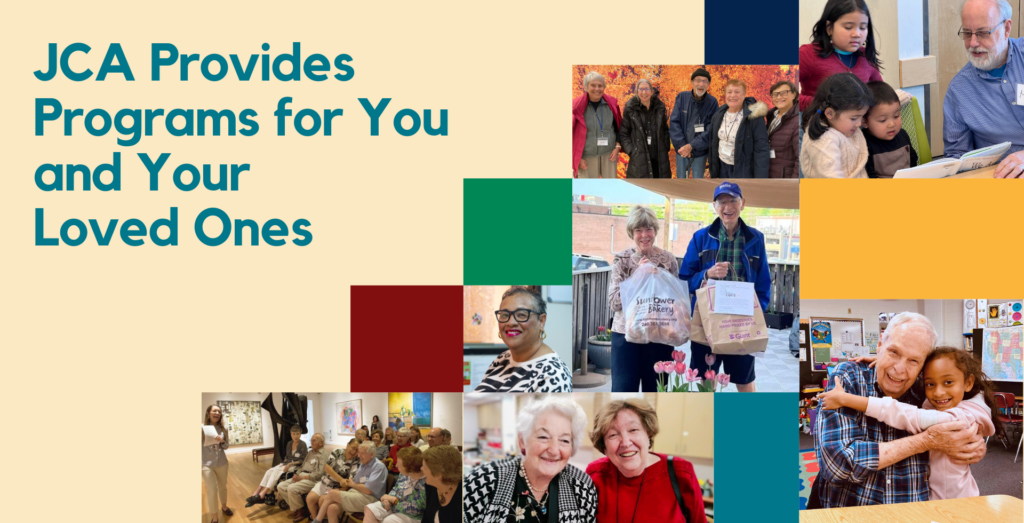
JCA helps older adults in the Greater Washington, D.C. region maintain independence, dignity, vitality, and self-respect.
JCA News and Blogs
At the bottom of this page, you will find three buttons and a running display of news and posts from the JCA newsfeed and blogs. Visit the JCA blog “Information for the Sandwich Generation” for news you can use about aging, resources, and staying active and connected. The Kensington Clubs blog shares news about Kensington Club activities, dementia care, caregiver support, and community events. As always, you can filter and search for topics of interest in our complete newsfeed, News & Events.
What Seniors Need To Know About The Big Tax And Budget Bill
July 24, 2025
by Howard Gleckman for his blog The massive 2025 budget bill, which Congress passed on July 3, would slash safety net programs for older adults, people with disabilities, and their family caregivers, though many of those cuts may not take effect for years. At the same time, the bill would lower taxes for some older adults. …
A Loved One Was Diagnosed With Dementia. Now What?
July 22, 2025
by Mohana Ravindranath for the New York Times Families and experts share their best advice for navigating and coping. “It’s the mental equivalent of death by a thousand paper cuts,” said Don Siegel, of Silver Spring, Md., whose wife, Bette, died in 2024 after several years with Lewy body dementia. Families are “left with someone …
Make a Giving Plan That Won’t Break the Bank
July 16, 2025
by Elena Ladygina, for the Beacon Making decisions about gifting can evoke many emotions. As you think about the legacy you want to leave, you may feel a sense of urgency to make a positive impact in the lives of your loved ones and on the world. In my discussions with retirement-age clients about charitable …












